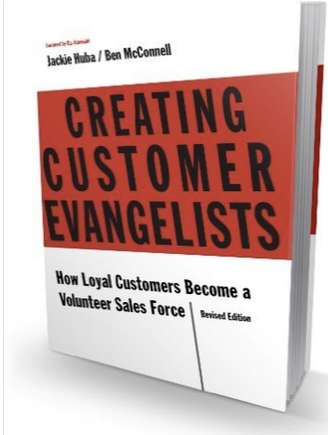
At the heart of every startup, there is a story, not about the product or the team, but one about its customer. Gone are the days when leaders told the self-centered narrative via mission, vision, and positioning:
“Disrupting _______”
“Revolutionizing _______”
“Changing the way people ________”
And invariably when these founders pitch to investors, they start with the same premise. “We are revolutionizing the way people do XYZ”. However, the sentence has no meaning to investors. At times, we’ve had to ask the founders, “Can you please tell me exactly what it is that you do?” and “Why is your service essential to the customer’s operations?”.
At Malpani Ventures, as a part of our due diligence, we speak to clients, vendors, existing investors among other people from the industry. And believe it or not, we will ask the customers why your service is essential to their operations! The words of your customers hold more weight than yours.
There have been times when a founder said their customers can not function without their service to be met with a thumping no from the customer. And there have been times when a founder said we may wind an adjacency down only to have customers being hooked onto few products in that adjacency. In both cases, the founders end up looking naive.
So, how do you avoid that? How do you get the true knowledge of your customers affinity towards your product? And how do you use that to craft a compelling narrative about your business?

The answers lie in questions. We always nudge our portfolio companies to keep interacting and engaging with their customers. Because the day will come when an investor will want to speak to one. And you and your customer need to be on the same page.
As a part of our due diligence, we speak to a minimum of four customers to understand the lay of the land.
While there are numerous questions we ask, these are the top three questions that are the most effective:
1. How has the startup changed your life?
This is a great opener because this does not talk about the customer’s problems or the company’s solutions. Instead, it focuses on the things that matter to the customer. This helps structure the rest of the conversation because the answers to this question are invaluable. One pet peeve is to keep asking more questions? If we hear “X helps me reduce costs”, we follow up with “what did you use before?” and we usually keep repeating this until we have information that isn’t generic.
2. What is different about your life before and after using the startup’s services?
This is to understand the distinct change that has happened because of services used. Different from the question above that highlights how has their life changed, this question highlights the exact difference in their life. This is a better second question because once the customer indicates the benefits they derive, a great follow up is to ask what exactly is different before and after. This helps you pinpoint the exact workflow that has been impacted by your offering.
3. Why will you keep using their services?
Some services are transaction-based, some are relationship-based. You want to hit for the latter. Transaction-based services are those where customers may switch the moment they derive lesser value than they’re paying for. However, relationship-based services are long-lasting and provide an incentive to the customer to stay put. The main difference between transaction-based services and relationship-based services is the lower cost of customer acquisition and retention. The longer the customer stays with you, the more profits you earn.
Customers are the greatest anchors

For a recently concluded deal, we interviewed several large corporate customers of the company we were evaluating. We spoke to 6 customers, all from different sectors to get the lay of the land. As a rule of thumb, we ask the same questions over and over until we get divergent views and then pursue that divergence until we are satisfied. The hallmark of our successful customer interviews was that irrespective of different sectors, use cases, and sizes of these companies, nearly every large theme pursued was met with a consistent theme and response.
We may not have been fully convinced about the deal, but the fantastic conversations with customers made our weak conviction strong! That was the day we truly realized that great pitches come from customers!